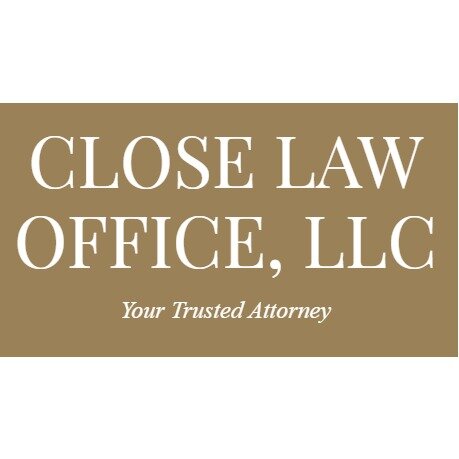Best Child Abuse Lawyers in Luanda
Share your needs with us, get contacted by law firms.
Free. Takes 2 min.
Free Guide to Hiring a Family Lawyer
List of the best lawyers in Luanda, Angola
About Child Abuse Law in Luanda, Angola
Child abuse in Luanda, Angola, encompasses various forms of harm towards children including physical, emotional, sexual abuse, as well as neglect. The Angolan government and legal system are committed to protecting children's rights, and legislation such as the Law on the Protection and Integral Development of Children is aimed at safeguarding these rights. Despite legal frameworks, child abuse remains a concern, often hindered by socio-cultural norms, economic challenges, and limited public awareness. Efforts are ongoing to improve reporting systems and support services for abused children.
Why You May Need a Lawyer
There are numerous situations where seeking legal advice becomes crucial when dealing with child abuse cases in Luanda:
- If you're a parent or guardian accused of child abuse, you need representation to navigate the legal complexities and ensure fair treatment.
- Victims or their representatives seeking to file a case against an abuser require legal assistance to build a strong case.
- In situations where custodial rights are questioned due to allegations of abuse, legal guidance is necessary to protect the child's best interests.
- Professionals such as teachers or healthcare workers seeking to understand their legal obligations in reporting suspected abuse can benefit from legal counsel.
- Legal intervention may be needed to ensure appropriate enforcement of child protection laws.
Local Laws Overview
Angola's legal framework concerning child abuse is rooted in several key pieces of legislation. The Law on the Protection and Integral Development of Children addresses different forms of abuse and mandates the protection of children's rights. Other relevant laws include the Family Code and Penal Code, which outline the roles and responsibilities of guardians and the penalties for those found guilty of child abuse. Engaging with these laws often requires a nuanced understanding of legal jargon and processes that a lawyer can assist with.
Frequently Asked Questions
What constitutes child abuse under Angolan law?
Child abuse is recognized as any act that causes physical, psychological, or sexual harm to a child. This includes neglect, exploitation, and trafficking.
How can I report child abuse in Luanda?
Incidents can be reported to local police, social workers, or specific hotlines dedicated to child protection.
Is there legal protection for whistleblowers of child abuse?
Yes, Angolan law provides legal protection for individuals who report child abuse in good faith, safeguarding them from retaliation.
What penalties can abusers face under Angolan law?
Penalties vary depending on the severity of the abuse but can include imprisonment, fines, and loss of custodial rights.
Are there legal services available for victims of child abuse?
Yes, there are legal aid services and NGOs that provide assistance to abuse victims, helping them with legal proceedings and securing their rights.
Can a child be removed from their home if abuse is suspected?
Yes, authorities can intervene and place the child in protective custody if it is deemed necessary for their safety.
What is the role of social services in child abuse cases?
Social services are responsible for assessing the situation, providing support to the child and family, and working with law enforcement to ensure child safety.
Can past child abuse be prosecuted after many years?
While it depends on the case and evidence, Angola's legal system may pursue charges if substantial evidence is presented, highlighting the seriousness of the allegations.
How can child abuse be prevented in communities?
Prevention efforts include public awareness campaigns, education, community involvement, and strengthening child protection systems.
What should I do if I suspect a child is being abused?
Report your concerns to authorities or child protection agencies immediately to ensure the child's safety and begin any necessary investigations.
Additional Resources
If you need further assistance or information on child abuse in Luanda, consider reaching out to:
- The Ministry of Social Action, Family, and Women Promotion (MASFAMU)
- Local NGOs focused on children's rights and protection
- Angolan Child Protection Network
- Legal aid clinics and law firms specializing in family or criminal law
Next Steps
If you're seeking legal assistance concerning child abuse in Luanda, start by consulting with a lawyer specializing in family or criminal law. Prepare any evidence or documentation relevant to the case, and ensure you understand your rights and obligations. Remember that seeking professional advice is crucial to navigate the legal landscape effectively and ensure the protection and welfare of the child involved.
Lawzana helps you find the best lawyers and law firms in Luanda through a curated and pre-screened list of qualified legal professionals. Our platform offers rankings and detailed profiles of attorneys and law firms, allowing you to compare based on practice areas, including Child Abuse, experience, and client feedback.
Each profile includes a description of the firm's areas of practice, client reviews, team members and partners, year of establishment, spoken languages, office locations, contact information, social media presence, and any published articles or resources. Most firms on our platform speak English and are experienced in both local and international legal matters.
Get a quote from top-rated law firms in Luanda, Angola — quickly, securely, and without unnecessary hassle.
Disclaimer:
The information provided on this page is for general informational purposes only and does not constitute legal advice. While we strive to ensure the accuracy and relevance of the content, legal information may change over time, and interpretations of the law can vary. You should always consult with a qualified legal professional for advice specific to your situation.
We disclaim all liability for actions taken or not taken based on the content of this page. If you believe any information is incorrect or outdated, please contact us, and we will review and update it where appropriate.















